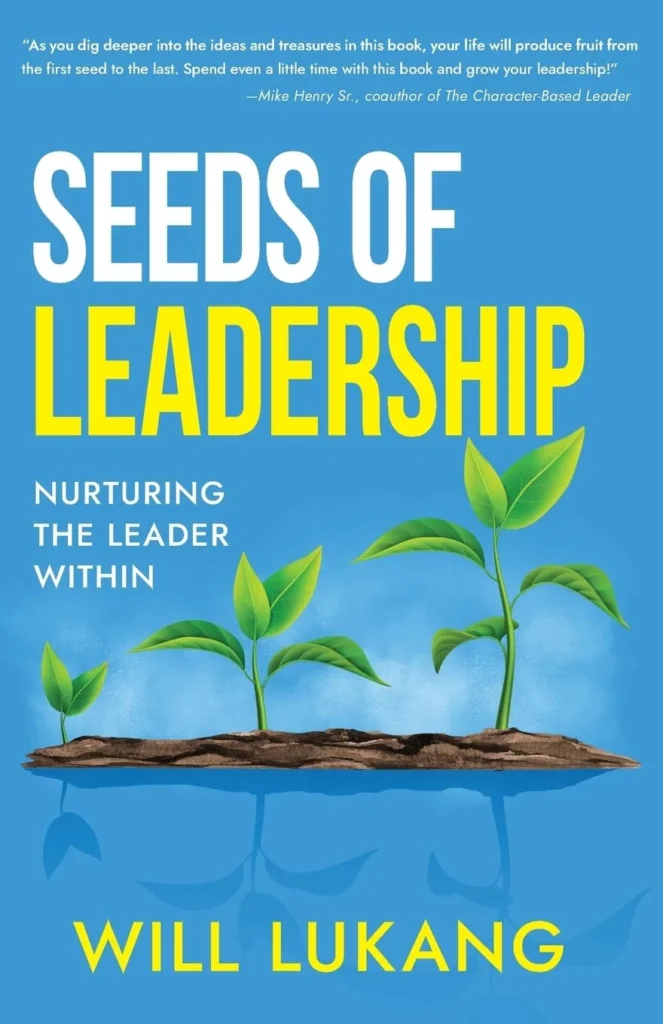In an era where traditional leadership models are being challenged by rapid technological change, remote work dynamics, and evolving generational expectations, one voice has emerged with a clarion call for a fundamentally different approach to developing effective leaders. Will Lukang, leadership coach and business strategist, has captured the attention of the literary and business communities alike with his groundbreaking book “Seeds of Leadership,” which has garnered an unprecedented 13 prestigious literary awards since its release. Drawing from decades of experience in management, coaching, and community leadership, Lukang presents leadership not as a static set of skills or hierarchical position, but as what he calls “a living, evolving practice” that can be nurtured through daily habits, intentional choices, and a commitment to service. His human-centered philosophy, encapsulated in the belief that “leadership isn’t about titles or control—it’s about vision, influence, and service,” challenges readers to reconceptualize their understanding of what it means to lead with clarity, purpose, and integrity in today’s complex organizational landscape.
Q. Your book “Seeds of Leadership” has received 15 prestigious literary awards, including recognition from the American Legacy Book Awards, International Impact Book Awards, and London Book Festival. What specific elements in your approach to leadership development do you believe resonated so strongly with these diverse award committees, and how did your decades of experience in management, coaching, and community leadership inform this particular perspective on effective leadership?
Will Lukang. I give glory to God for this blessing. I believe the book resonates with award committees because it’s grounded in real-life experience. The framework I created—Story–Concept–Reflection—makes the lessons easier to follow and more relatable.
My three decades of leadership have allowed me to face many different situations, learn from them, and refine those lessons over time. Leadership is never static; it evolves. That’s why it’s essential to continue learning and moving forward.
Q. You define leadership as being about “vision, influence, and service” rather than titles or control, which challenges many traditional corporate hierarchies. Can you share specific examples from your coaching practice where you’ve seen this philosophy transform both individual leaders and organizational cultures, and how do you help established executives transition from command-and-control models to this more service-oriented approach?
Will Lukang. At my last workplace, I made it a point to ask each of my direct reports about their vision for their team. I wanted to know their plan for growing more leaders and investing in the development of their people. By being intentional in my coaching, they began to understand the importance of focusing on growth—not just their own, but also the growth of others.
Over time, the results spoke for themselves: teams became more committed and invested in serving our customers, consistently giving their best effort. We also ensured that every leader in our area received proper training, mentoring, and coaching. This deliberate focus created a culture of service—one where developing people was at the core of how we led.
Pivoting from the old command-and-control style to a service-oriented approach begins with leaders empowering their people and involving them early in the process. It means providing the right tools, offering support, and creating space for them to be part of decision-making. When people know their voice matters, they take ownership and drive progress forward, without the need for micromanagement, because they feel trusted and invested in the outcome.
Q. You describe leadership as “a living, evolving practice” that can be nurtured like a seed through daily habits and intentional choices. What specific daily practices or habits have you identified as most crucial for developing leadership capacity, and how do the reflection prompts and hands-on exercises in your book translate into real behavioral changes for readers in their professional environments?
Will Lukang. I use seeds as an analogy: anything you want to see in the future has to be planted, watered, and nurtured to grow. The reflections I share come from real-life experiences that help readers raise their awareness, improve themselves, and serve others better. When we’re not aware of something, we just don’t know what we don’t know. But once we experience it, it becomes part of us, and that experience is what shifts behavior
Q. Your book arrives at what you call “a critical moment” when the need for adaptable and emotionally intelligent leaders has never been greater. From your experience coaching leaders across different industries, what are the most significant leadership challenges that today’s professionals face that weren’t as prominent in previous decades, and how does your framework specifically address these modern complexities?
Will Lukang. One of the biggest challenges is helping leaders understand that emotional intelligence isn’t about emotion—it’s about understanding our own behavior and how we engage with the people around us. In many ways, it’s about us: how we respond to situations and how we create an environment where others can do meaningful work. Through the reflection approach, I challenge readers to think about what they’re dealing with and consider handling it differently based on what they’ve learned about themselves.





























